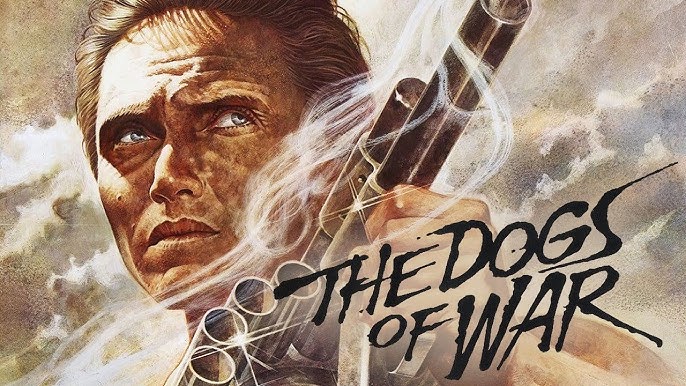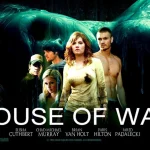The Dogs of War (1980)

“The Dogs of War,” released in 1980, is a British war film directed by John Irvin, based on the novel of the same name by Frederick Forsyth. Set against the backdrop of political intrigue and conflict, the film delves into the morally ambiguous world of mercenaries and the complexities of warfare. With powerful performances by Christopher Walken and Tom Berenger, the film offers a gripping narrative that raises questions about loyalty, ethics, and the consequences of war.
The story follows Jamie Shannon (Christopher Walken), a seasoned mercenary with a pragmatic approach to life and warfare. He is approached by a powerful industrialist, Sir James Delaney (played by Colin Blakely), who hires him to lead a group of mercenaries in a coup against a fictional African nation, Zangaro. The film opens with Shannon’s introduction as a man who has witnessed the brutality of war firsthand, and his character is portrayed as both competent and conflicted.
Shannon’s mission involves training a local militia to overthrow the existing government and install a puppet regime favorable to Western interests. The film effectively captures the chaotic atmosphere of mercenary warfare, portraying the soldiers as both skilled and ruthless. The portrayal of mercenaries raises ethical questions about the motivations behind their actions, as they operate outside the constraints of national allegiance and moral responsibility.
One of the film’s strengths is its realistic depiction of military operations. John Irvin, drawing from his own experiences in the military, brings authenticity to the film. The action sequences are intense and well-choreographed, emphasizing the brutality of combat and the psychological toll it takes on the soldiers involved. The film does not shy away from showing the grim realities of war, with graphic depictions of violence and the devastating consequences of conflict on both soldiers and civilians.
The relationship dynamics among the mercenaries are central to the narrative. Tom Berenger plays a significant role as a fellow mercenary, providing a foil to Shannon’s character. The camaraderie among the soldiers, mixed with underlying tensions and personal conflicts, adds depth to the story. These interactions serve to humanize the mercenaries, highlighting their motivations and vulnerabilities amidst the chaos of war.

The film also explores themes of greed and exploitation. The motivations of the characters are often driven by financial gain, raising questions about the ethical implications of mercenary work. As the plot unfolds, it becomes clear that the political machinations behind the coup are fueled by corporate interests and profit, rather than genuine concern for the people of Zangaro. This critique of the military-industrial complex resonates throughout the film, making it not just a war story, but a commentary on the darker aspects of power and ambition.

Visually, “The Dogs of War” is striking, with cinematography that captures the beauty and brutality of its Belizean locations. The contrasting imagery of lush landscapes against the violence of conflict enhances the film’s thematic depth. The decision to shoot in Belize provides an authentic setting that mirrors the fictional country of Zangaro, adding to the film’s credibility.

Christopher Walken delivers a compelling performance as Shannon, embodying the complexity of a character who is both a skilled soldier and a man wrestling with his conscience. Walken’s portrayal captures the internal struggle of a man who is disillusioned by the realities of war yet remains deeply entrenched in it. Tom Berenger, in his role, adds intensity to the film, showcasing the different facets of mercenary life and the personal sacrifices that come with it.
The film’s pacing is deliberate, allowing for moments of introspection that contrast with the high-stakes action. This balance of action and character development elevates “The Dogs of War” beyond a typical war film, inviting audiences to reflect on the moral dilemmas faced by those involved in mercenary operations.

In conclusion, “The Dogs of War” is a thought-provoking exploration of mercenary warfare, examining the complexities of loyalty, ethics, and the consequences of conflict. Directed by John Irvin and featuring powerful performances from Christopher Walken and Tom Berenger, the film effectively captures the grim realities of war while offering a critical commentary on the motivations behind it. With its realistic portrayal of military operations and its exploration of the moral ambiguities of mercenary life, “The Dogs of War” remains a significant contribution to the war film genre, compelling audiences to ponder the true cost of conflict and the nature of humanity in times of chaos.











